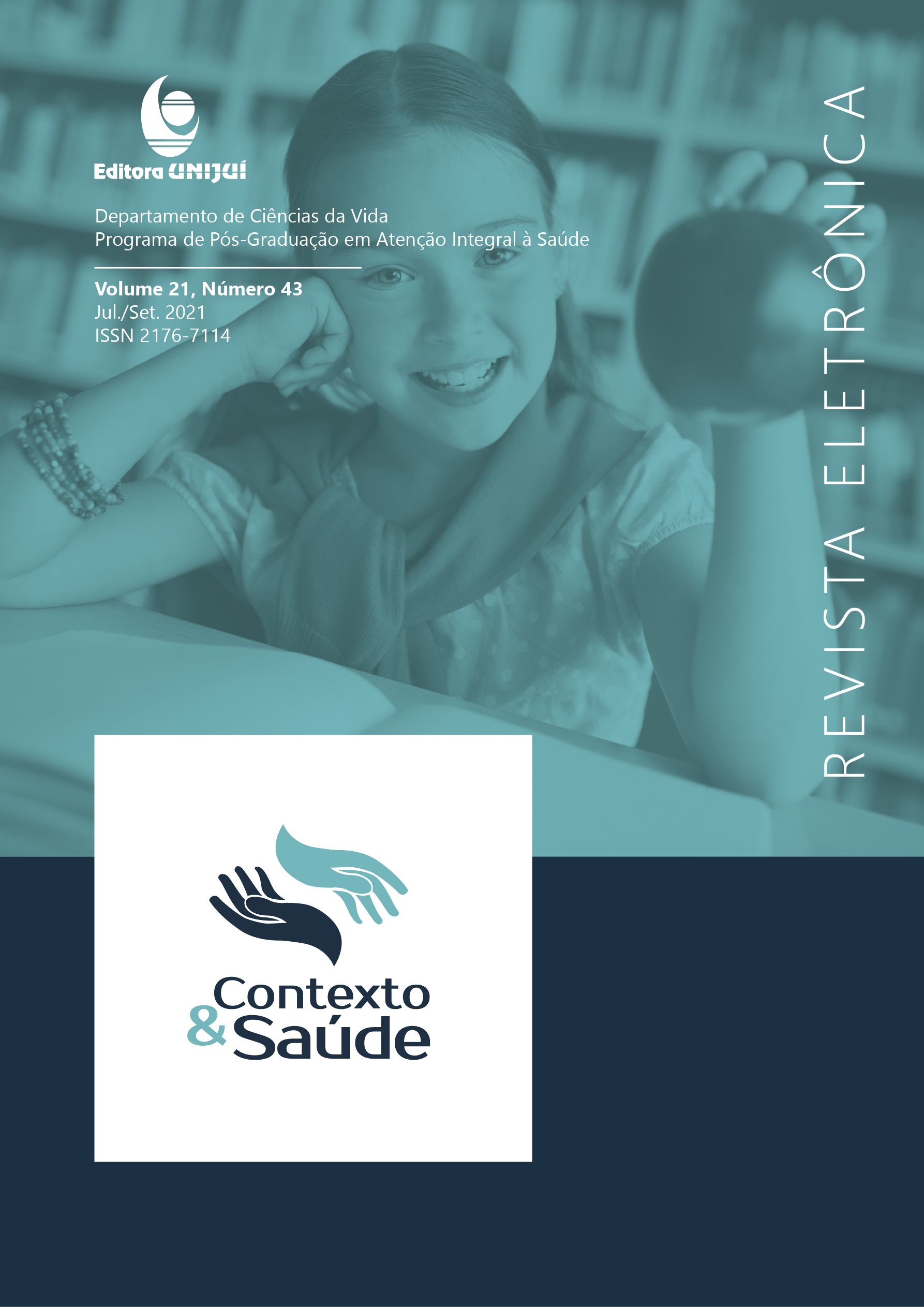USO DE MEDICAMENTOS POTENCIALMENTE INAPROPRIADOS POR IDOSOS RESIDENTES EM UMA INSTITUIÇÃO DE LONGA PERMANÊNCIA EM GOIÁS, BRASIL
USE OF POTENTIALLY INAPPROPRIATE MEDICATIONS BY OLDER ADULTS RESIDENTS IN A LONG-TERM CARE INSTITUTION IN GOIÁS, BRAZIL
DOI:
https://doi.org/10.21527/2176-7114.2021.43.11806Palavras-chave:
Lista de Medicamentos Potencialmente Inapropriados. Instituição de Longa Permanência para Idosos. Segurança do Paciente. Enfermagem Geriátrica.Resumo
Objetivo: Analisar o uso de medicamentos potencialmente inapropriados (MPIs) em prescrições para idosos em uma instituição de longa permanência, segundo os Critérios de Beers 2015. Método: Estudo transversal observacional de prontuários de 77 idosos residentes em uma instituição de longa permanência de Goiás, Brasil, sobre dados de saúde e medicamentos utilizados. A análise dos MPIs foi realizada por meio de análises descritivas. Resultados: Os medicamentos mais prevalentes como MPI-1 foram diazepam, omeprazol e risperidona, como MPI-2 diazepam, risperidona e citalopram e MPI-3, hidroclorotiazida e ácido acetilsalicílico. Conclusão: Prescrições de medicamentos para idosos devem ser centradas nas circunstâncias individuais e nos objetivos terapêuticos. Nesse sentido, esse estudo contribui para a prática da segurança do paciente idoso pelo uso de ferramenta explícita de análise de MPIs.
Downloads
Publicado
Como Citar
Edição
Seção
Licença

Este trabalho está licenciado sob uma licença Creative Commons Attribution 4.0 International License.
Ao publicar na Revista Contexto & Saúde, os autores concordam com os seguintes termos:
Os trabalhos seguem a licença Creative Commons Atribuição 4.0 Internacional (CC BY 4.0), que permite:
Compartilhar — copiar e redistribuir o material em qualquer meio ou formato;
Adaptar — remixar, transformar e criar a partir do material para qualquer fim, inclusive comercial.
Essas permissões são irrevogáveis, desde que respeitados os seguintes termos:
Atribuição — os autores devem ser devidamente creditados, com link para a licença e indicação de eventuais alterações realizadas.
Sem restrições adicionais — não podem ser aplicadas condições legais ou tecnológicas que restrinjam o uso permitido pela licença.
Avisos:
A licença não se aplica a elementos em domínio público ou cobertos por exceções legais.
A licença não garante todos os direitos necessários para usos específicos (ex.: direitos de imagem, privacidade ou morais).
A revista não se responsabiliza pelas opiniões expressas nos artigos, que são de exclusiva responsabilidade dos autores. O Editor, com o apoio do Comitê Editorial, reserva-se o direito de sugerir ou solicitar modificações quando necessário.
Somente serão aceitos artigos científicos originais, com resultados de pesquisas de interesse que não tenham sido publicados nem submetidos simultaneamente a outro periódico com o mesmo objetivo.
A menção a marcas comerciais ou produtos específicos destina-se apenas à identificação, sem qualquer vínculo promocional por parte dos autores ou da revista.
Contrato de Licença (para artigos publicados a partir de setembro/2025): Os autores mantém os direitos autorais sobre seu artigo, e concedem à Revista Contexto & Saúde o direito de primeira publicação.

